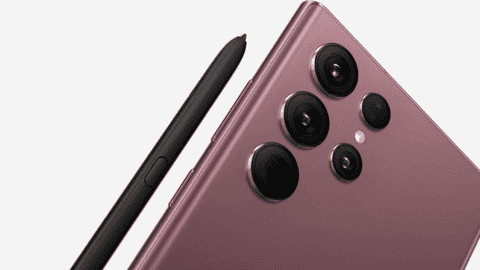Samsung is gearing up for the grand launch of its Galaxy S24 series in January. Excitingly, today, we caught a glimpse of the forthcoming Ultra variant designed for the US market as it made an appearance on Geekbench.
Samsung Galaxy S24 Ultra: Geekbench Reveals the Performance of the Snapdragon 8 Gen 3 chip
The device in question, the SM-S928U, flaunts the powerful Snapdragon 8 Gen 3 chipset, known by its codename “pineapple.” What sets this chipset apart is its unique 1+3+2+2 CPU configuration. The lead core commands at 3.30 GHz, a slight dip from the previous generation’s Snapdragon flagship. Nevertheless, the real marvel lies in the supporting cores: a trio of cores runs at a brisk 3.15 GHz, followed by two units humming along at 2.96 GHz, and finally, the last two cores ticking steadily at 2.27 GHz.
Despite this impressive configuration, the tested phone featured a relatively modest 8 GB of RAM. We anticipate it will run on Android 14, probably with the One UI 6.1 user interface layered on top.
The benchmark results were nothing short of spectacular, with a single-core score of 2,234 and a multi-core score of 6,807. This represents a substantial boost from the Galaxy S23 Ultra with Snapdragon 8 Gen 2. Boasting a remarkable 15% and 35% increase, respectively.
However, the real revelation here is not just the raw numbers. It’s the clear indication that Samsung is diversifying its chipsets once more. While the Exynos 2400 platform is set to power some of the Galaxy S24 flagships, it’s possible that it might be reserved for the S24 and S24+ models, with the Ultra firmly embracing the Snapdragon 8 Gen 3. This strategic move could bring an intriguing new dimension to Samsung’s upcoming flagship lineup. Exciting times await for tech enthusiasts as we eagerly anticipate the official unveiling of the Galaxy S24 series in the near future.
Here are the rumored specs for the Samsung Galaxy S24 Ultra:
- Display: 6.8-inch Dynamic AMOLED 2x display with 120Hz refresh rate and 2K resolution
- Processor: Qualcomm Snapdragon 8 Gen 3 or Samsung Exynos 2400
- RAM: 8GB/12GB/16GB
- Storage: 256GB/512GB/1TB
- Rear cameras: 200MP main sensor, 12MP ultrawide sensor, 50MP telephoto sensor with 5x optical zoom, 10MP periscope telephoto sensor with 10x optical zoom
- Front camera: 12MP
- Battery: 5000mAh with 45W fast charging
- Operating system: Android 14
Snapdragon 8 Gen 3 vs. other chipsets
The Snapdragon 8 Gen 3 is rumored to be one of the most powerful mobile chipsets on the market when it is released in 2024. It is expected to be manufactured on TSMC’s 3nm process, which will allow for smaller transistors and better power efficiency.
In terms of performance, the Snapdragon 8 Gen 3 will have a new 1+5+2 CPU architecture. This means that it will have one high-performance core, five mid-range cores, and two power-efficient cores. This should provide a good balance of performance and battery life.
The Snapdragon 8 Gen 3 will also have a new Adreno 750 GPU. This GPU will be up to 40% faster than the Adreno 740 GPU found in the Snapdragon 8 Gen 2.
Overall, the Snapdragon 8 Gen 3 is expected to be a significant upgrade over the Snapdragon 8 Gen 2. It should offer better performance, better power efficiency, and better graphics performance.
How the Snapdragon 8 Gen 3 might affect the user experience
The Snapdragon 8 Gen 3 is expected to have a significant impact on the user experience of smartphones. It should make smartphones faster, more responsive, and more efficient.
For example, the Snapdragon 8 Gen 3 should make it possible to load apps and games faster, and to switch between apps more smoothly. It should also make it possible to play games at higher graphics settings without sacrificing battery life.
In addition, the Snapdragon 8 Gen 3 will improve the performance of artificial intelligence (AI) applications on smartphones. This means that AI-powered features such as facial recognition, image processing, and natural language processing should be faster and more accurate.
Overall, the Snapdragon 8 Gen 3 will make smartphones more powerful, more efficient, and more intelligent. This should lead to a significant improvement in the user experience.
Here are some specific examples of how the Snapdragon 8 Gen 3 might affect the user experience:
- Gaming: The Snapdragon 8 Gen 3’s more powerful GPU should allow users to play games at higher graphics settings and frame rates without sacrificing battery life. This should lead to a more immersive and enjoyable gaming experience.
- Augmented reality (AR) and virtual reality (VR): The Snapdragon 8 Gen 3’s improved AI and graphics performance should make it better suited for AR and VR applications. This could lead to more realistic and engaging AR and VR experiences.
- Photography and videography: The Snapdragon 8 Gen 3’s improved AI and image processing capabilities could lead to better photos and videos taken with smartphones. For example, the Snapdragon 8 Gen 3 could improve the performance of low-light photography and night mode.
- Battery life: The Snapdragon 8 Gen 3’s improved power efficiency could lead to longer battery life for smartphones. This means that users will be able to use their smartphones for longer periods of time on a single charge.
Overall, the Snapdragon 8 Gen 3 is a significant upgrade over the Snapdragon 8 Gen 2. It will offer better performance, better power efficiency, and better graphics performance. This should lead to a significant improvement in the user experience of smartphones.
Follow Gizchina.com on Google News for news and updates in the technology sector.

